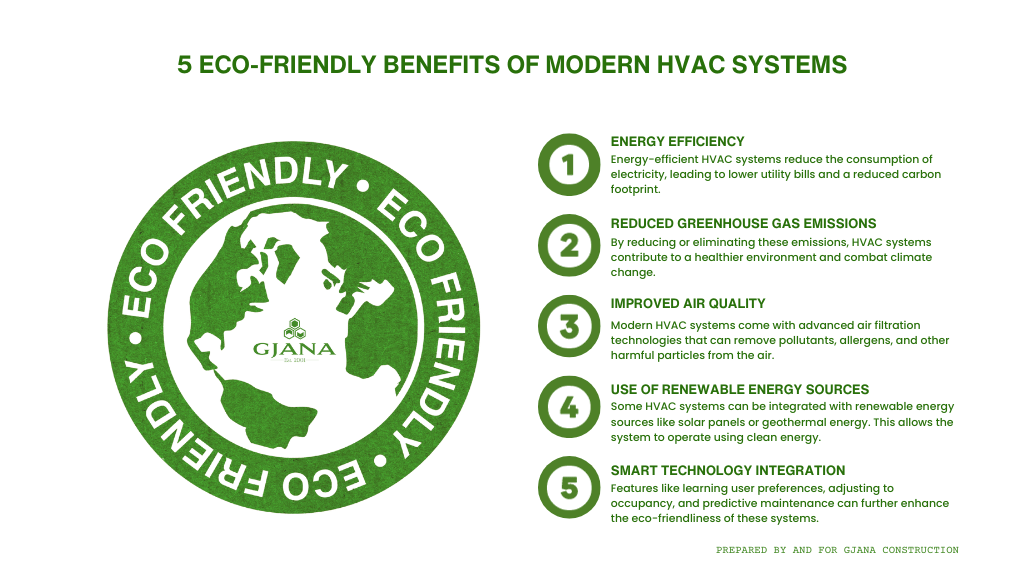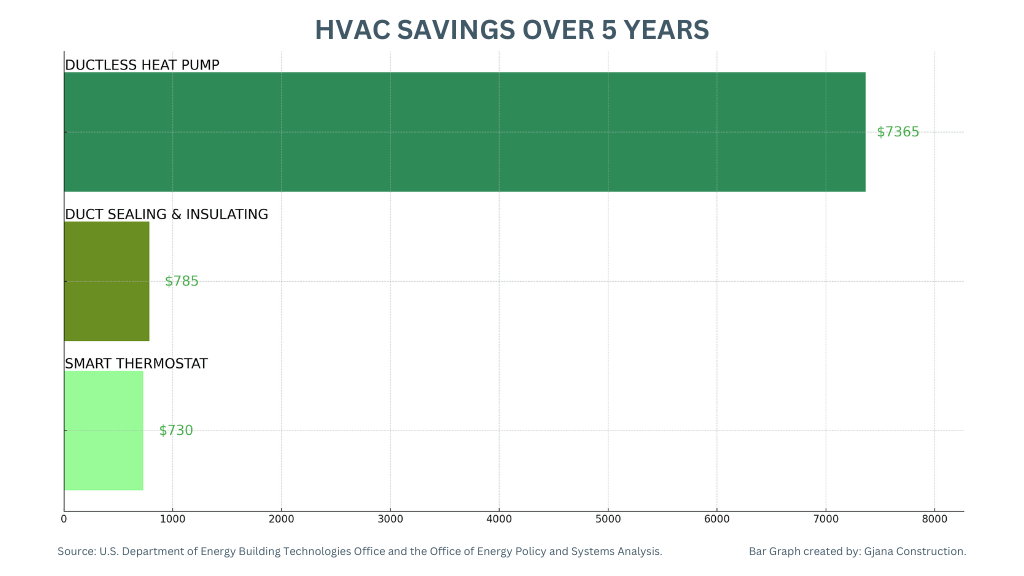TOP-RATED HVAC SERVICE CONTRACTOR


MANHATTAN
LONG ISLAND
WESTCHESTER COUNTY
FAIRFIELD COUNTY
HVAC SERVICES
HVAC (Heating, Ventilation, and Air Conditioning) systems are an essential component of the modern home by regulating temperature, humidity, and air quality. When properly installed and maintained, HVAC systems can significantly impact the comfort of your home.
Our professional HVAC contractor teams help keep families, like yours, warm during cold climate seasons. Residential HVAC services include installation, maintenance and repair. Need service right away? Give us a call!
Need an estimate for an install or repair?
ECO-FRIENDLY HVAC SOLUTIONS
Our eco-friendly solutions can help you reduce your carbon footprint and save on utility costs and provide a comfortable indoor environment by regulating temperature, humidity, and air quality.
Additionally, up to 26% of the energy used by homeowners can be saved through HVAC upgrades.
Most of these improvements pay back in less than 5 years for households.
Data supported by the U.S. Department of Energy Building Technologies Office and the Office of Energy Policy and Systems Analysis.
Want to learn more about eco-friendly HVAC solutions?
5 TYPES OF HVAC SYSTEMS
Choosing the right HVAC system for your home is crucial for ensuring optimal comfort and energy efficiency. Below are 5 popular HVAC system types, suitability for different homes, and general factors that can influence their costs.
Central Air Conditioners and Heat Pumps
Suitable for homes with existing ductwork and medium to large-sized homes.
Cost: $2,500 to $7,500+
Influenced by the size of the home, efficiency and brand of the unit, complexity of installation, and ductwork presence.
Ductless Mini-Split Systems
Suitable for homes without ductwork, additions/outbuildings, and homes desiring individual room control.
Cost: $2,000 to $14,000+ (per indoor unit)
Influenced by the number of indoor units, brand, efficiency, and installation complexity.
Radiant Heating Systems
Suitable for new constructions/major renovations, homes in colder climates, and those seeking energy-efficient heating.
Cost: $6 to $15 per square foot
Influenced by type (electric vs. hydronic), size of the area, and installation type (new vs. retrofit).
Geothermal Heat Pumps
Suitable for homes with ample yard space and homes in varied climates seeking energy efficiency.
Cost: $10,000 to $30,000+
Influenced by the size/type of the loop system, brand and efficiency of the pump, and excavation costs.
Packaged Heating and Air Conditioning Systems
Suitable for small homes, homes with limited indoor space, and homes in mild climates.
Cost: $3,500 to $7,500+
Influenced by the size of the home, brand, efficiency, and installation complexity.
Note: These above listed information is intended to provide general ranges for homeowners researching their options. Actual prices can vary significantly based on brand, size, region, installation complexity, and other factors. To get a more accurate estimate for your home, give us a call.
5 ENERGY STAR CERTIFIED HVAC SYSTEMS
Each of these systems has its unique features, such as advanced heat exchanger types, smart thermostat compatibility, and high SEER ratings, making them efficient choices for various needs.
This list is being provided for general information purposes and should not be construed as a recommendation or endorsement. We encourage discussions with a professional either by phone or during an in-person estimate when making such purchasing decisions as each home make have unique circumstances that should be considered.

American Standard HVAC Systems
Efficiency: 18-22 SEER for cooling, 80-97% AFUE for heating
Price Range: $3,000-$10,000
Warranty: 10-12 years
Cooling/Heating Capacity: 18,000 – 60,000 BTUs
Features: Variable speed, Humidity control
Noise Level: 70-75 dB
Consumer Reviews: Positive
*GJANA-AI RATING: 32

Carrier Infinity Series
Efficiency: 20-23 SEER for cooling, 80-98% AFUE for heating
Price Range: $4,000-$12,000
Warranty: 10 years
Cooling/Heating Capacity: 24,000 – 60,000 BTUs
Features: Smart home compatible, Variable speed
Noise Level: 65-70 dB
Consumer Reviews: Positive
*GJANA-AI RATING: 33

Daikin DX20VC
Efficiency: 23 SEER for cooling, 81-98% AFUE for heating
Price Range: $3,500-$11,000
Warranty: 12 years
Cooling/Heating Capacity: 18,000 – 55,000 BTUs
Features: Inverter technology, Eco+ mode
Noise Level: 58-65 dB
Consumer Reviews: Positive
*GJANA-AI RATING: 36

Trane XV20i TruComfort
Efficiency: 22 SEER for cooling, 80-97% AFUE for heating
Price Range: $4,500-$13,000
Warranty: 10-12 years
Cooling/Heating Capacity: 20,000 – 60,000 BTUs
Features: Variable speed, ComfortLink II
Noise Level: 55-70 dB
Consumer Reviews: Positive
*GJANA-AI RATING: 33

Mitsubishi Electric Zoned Comfort Solutions
Efficiency: 16-20.5 SEER for cooling, 81-95% AFUE for heating
Price Range: $2,500-$8,000
Warranty: 10-12 years
Cooling/Heating Capacity: 9,000 – 48,000 BTUs
Features: Zoned cooling/heating, Smart controls
Noise Level: 50-60 dB
Consumer Reviews: Positive
*GJANA-AI RATING: 33
* Note: We used AI assistance to compute the GJANA-AI comparative rating for each HVAC system. Our rating computations used a point system based on eight key factors: Efficiency, Price Range, Warranty, Cooling/Heating Capacity, Features, Noise Level, Consumer Reviews, and Energy Star Certification. Each factor was rated on a scale of 1 to 5, with 5 being the best. For Efficiency, higher SEER and AFUE ratings received more points. A lower price range was favored with more points, while a longer warranty also garnered additional points. Higher cooling and heating capacity in BTUs was considered better. Systems with more features and lower noise levels in decibels received higher scores. For Consumer Reviews, a “positive” sentiment received a full score of 5 points. Finally, systems that are Energy Star Certified received 5 points, while those that are not received 0 points. The total points for each system were then summed up to provide an overall comparative rating.
HVAC FREQUENTLY ASKED QUESTIONS & ANSWERS
HVAC stands for Heating, Ventilation, and Air Conditioning systems. These systems are essential components of modern home construction, regulating temperature, humidity, and air quality to provide a comfortable indoor environment.
Why are properly designed HVAC systems important?
Properly designed HVAC systems can greatly impact a home’s comfort, energy efficiency, and overall performance. They maximize energy efficiency, minimize operating costs, and ensure optimal performance.
What factors are considered when designing HVAC systems for a home?
Designing HVAC systems involves considerations like home size, layout, insulation levels, and local climate conditions. It also includes selecting appropriate equipment such as furnaces, air conditioners, heat pumps, and ventilation systems.
How do I choose the right HVAC equipment for my home?
Factors to consider when choosing HVAC equipment include equipment type, efficiency rating, fuel source, and compatibility with your home’s design. Look for ENERGY STAR® certified equipment for energy efficiency and cost savings.
Why is proper installation of HVAC systems important?
Proper installation, carried out by certified HVAC contractors, ensures safe and efficient operation. Incorrect installation can lead to reduced performance, increased energy consumption, and safety hazards.
What maintenance is required for HVAC systems?
Regular maintenance tasks include cleaning/replacing air filters, inspecting/cleaning coils, checking refrigerant levels, and lubricating motors/fans. Maintenance improves energy efficiency, prevents breakdowns, and extends system lifespan.
How do HVAC systems impact energy efficiency and indoor air quality?
Proper insulation, air sealing, and ductwork design minimize energy waste. Choosing high-efficiency HVAC equipment saves energy and money. HVAC systems also affect indoor air quality, so consider ventilation systems and air quality accessories.
What building codes and regulations apply to HVAC systems in home construction?
HVAC systems must adhere to local building codes and regulations. These codes cover equipment sizing, installation, ventilation, ductwork design, and safety features. Work with knowledgeable HVAC contractors to ensure compliance.
What are smart and green HVAC solutions?
Smart HVAC solutions use technology like smart thermostats for remote control and energy optimization. Green HVAC solutions, such as geothermal heat pumps and solar-powered systems, reduce environmental impact and energy costs.
How can I make my HVAC system more energy-efficient and eco-friendly?
To boost energy efficiency and eco-friendliness, consider upgrading to energy-efficient equipment, sealing ducts, enhancing insulation, and exploring renewable energy sources like solar or geothermal systems.
Still have questions? Or want to Schedule an estimate? We’re waiting for your call!
Westchester NY Field Office & Service Areas
Amawalk · Ardsley · Ardsley On Hudson · Armonk · Baldwin Place · Bedford · Bedford Hills · Briarcliff Manor · Bronxville · Buchanan · Chappaqua · Cortlandt Manor · Crompond · Cross River · Croton Falls · Croton On Hudson · Dobbs Ferry · Eastchester · Elmsford · Goldens Bridge · Granite Springs · Harrison · Hartsdale · Hastings On Hudson · Hawthorne · Irvington · Jefferson Valley · Katonah · Larchmont · Lincolndale · Mamaroneck · Maryknoll · Millwood · Mohegan Lake · Montrose · Mount Kisco · Mount Vernon · New Rochelle · North Salem · Ossining · Peekskill · Pelham · Pleasantville · Port Chester · Pound Ridge · Purchase · Purdys · Rye · Scarsdale · Shenorock · Shrub Oak · Somers · South Salem · Tarrytown · Thornwood · Tuckahoe · Valhalla · Verplanck · Waccabuc · West Harrison · White Plains · Yonkers · Yorktown Heights







 MANHATTAN
250 Park Avenue
MANHATTAN
250 Park Avenue LONG ISLAND
100 Duffy Ave
LONG ISLAND
100 Duffy Ave WESTCHESTER COUNTY
73 Market Street
WESTCHESTER COUNTY
73 Market Street FAIRFIELD COUNTY
1000 Lafayette Blvd
FAIRFIELD COUNTY
1000 Lafayette Blvd